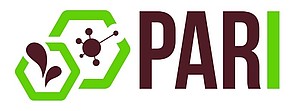 PARI aims to contribute to sustainable agricultural growth and food and nutrition security in Africa and India as part of the One World, No Hunger Initiative (SEWOH) by the German government. PARI accompanies development efforts with research on the potential and challenges of different agricultural innovations and with research on how to strengthen the framework conditions for the generation and dissemination of promising innovations. The division 490C leads PARI’s research activities on agricultural mechanization and researches livestock development, agrochemical use, and digital agriculture in several African countries and India.
PARI aims to contribute to sustainable agricultural growth and food and nutrition security in Africa and India as part of the One World, No Hunger Initiative (SEWOH) by the German government. PARI accompanies development efforts with research on the potential and challenges of different agricultural innovations and with research on how to strengthen the framework conditions for the generation and dissemination of promising innovations. The division 490C leads PARI’s research activities on agricultural mechanization and researches livestock development, agrochemical use, and digital agriculture in several African countries and India.
Link to the project website
Related Publications:
Daum, Thomas, & Birner, Regina. 2020. Agricultural mechanization in Africa: Myths, realities and an emerging research agenda. Global Food Security, 26, 100393. https://www.sciencedirect.com/science/article/pii/S221191242030047X
Daum, Thomas, Adegbola, Y. Patrice, Kamau, Geoffrey, Kergna, O. Alpha, Daudu, Christogonus, Zossou, Roch, Crinot, G. Fabrice, Houssou, Paul., Mose, Lawrence, Ndirpaya, Yarama, Wahab A. A., Kirui, Oliver, Oluwole, Fantunbi. 2020. Impacts of agricultural mechanization: Evidence from four African countries. Hohenheim Working Papers on Social and Institutional Change in Agricultural Development. 003-2020. University of Hohenheim. https://490c.uni-hohenheim.de/fileadmin/einrichtungen/490c/Publikationen/Working_Papers_3_Mechanization_Impacts.pdf
Daum, Thomas, Villalba, Roberto, Anidi, Oluwakayode, Mayienga, Sharon, Gupta, Saurabh, Birner, Regina. 2020. Uber for tractors? Opportunities and challenges of digital tools for tractor hire in India and Nigeria. Hohenheim Working Papers on Social and Institutional Change in Agricultural Development 001-2020. University of Hohenheim. https://490c.uni-hohenheim.de/fileadmin/einrichtungen/490c/Publikationen/WP_001-2020_Uber_for_tractors_-_Opportunities_and_challenges_of_digital_tools_for_tractor_hire_in_India_and_Nigeria.pdf
Daum, Thomas. 2019. Of bulls and bulbs: Aspirations, opinions and perceptions of rural adolescents and youth in Zambia. Development in Practice, 29(7), 882-897. https://www.tandfonline.com/doi/full/10.1080/09614524.2019.1646209
Adu-Baffour, Ferdinand, Daum, Thomas, & Birner, Regina. 2019. Can small farms benefit from big companies’ initiatives to promote mechanization in Africa? A case study from Zambia. Food Policy, 84, 133-145. https://www.sciencedirect.com/science/article/pii/S0306919218303816
Daum, Thomas, Buchwald, Hannes, Gerlicher, Ansgar, & Birner, Regina. 2019. Times Have Changed Using a Pictorial Smartphone App to Collect Time-Use Data in Rural Zambia. Field Methods, 31 (1), 3-22. https://journals.sagepub.com/doi/full/10.1177/1525822X18797303
Daum, Thomas, Capezzone, Filippo, Birner, Regina. 2018. The forgotten agriculture-nutrition link. Estimating the energy requirements of different farming technologies in rural Zambia with time-use data. ZEF Working Paper No. 182. Center for Development Research.
https://www.zef.de/uploads/tx_zefnews/ZEF_WP_182.pdf
Daum, Thomas, Buchwald, Hannes, Gerlicher, Ansgar, & Birner, Regina. 2018. Smartphone apps as a new method to collect data on smallholder farming systems in the digital age: A case study from Zambia. Computers and Electronics in Agriculture, 153, 144-150.
https://www.sciencedirect.com/science/article/abs/pii/S0168169917314886
Daum, Thomas, Huffman, Wallace. E., & Birner, Regina. 2018. How to create conducive institutions to enable agricultural mechanization: A comparative historical study from the United States and Germany. Economics Working Papers IOWA State University No. 18009.
https://core.ac.uk/download/pdf/212843662.pdf